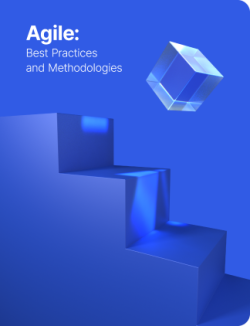Planning poker
What is planning poker?
Planning poker definition
Planning poker, sometimes called "scrum poker", is a game played by teams during agile development. In this game, each member of the team is invited to estimate how long various tasks are expected to take. It's a fun way of tackling a typically high-stress and sometimes inaccurate process.
In planning poker, each member of the team is given a number of cards. Each card is marked with a unit that represents the length of time it will take to complete a project. That could be represented by days, hours, etc.
The leader (team manager) then brings out each task that will need to be completed, and after some discussion, the team members vote on how long the task will take by placing down their corresponding cards. The score is averaged out to determine how long that task should take.
What is the purpose of planning poker?
The purpose of planning or priority poker is to help teams using the agile development methodology to reach a consensus on how long each task in a development cycle will take.
Rather than leaving this up to a manager (who might not have hands-on experience with the various tasks), the process of determining the length of each task is divided among everyone on the team.
How is planning poker done?
Unlike many agile development exercises, planning poker follows a pretty standardized series of steps. You're unlikely to see a lot of variation within the exercise, particularly because it's so simple by design.
1. Pass out your planning poker cards
The first step of planning poker is to pass out your planning poker cards. Each team member should get the same number and sequence of cards. That might look like ten cards numbered one through ten, or ten staggered cards with values like one through five, ten, twenty, fifty, and one hundred.
Not only will the numbers on the cards depend on what your team deems appropriate, but what the numbers represent will also be up to your group. They could be something vague, such as "story points", or something more concrete, like man-hours.
2. Go through the story
After each person has been given the same number of cards (or poker chips), you're ready to go through the "story" for this round. Each story represents a task or series of tasks to be completed.
Lay out what tasks will be included in this story so that everyone has an idea of what they're going to be voting on.
3. Have a discussion
Next, let your team members have a discussion about this story. This is an opportunity for the various stakeholders in this story to offer up their input. For example, if this will require debugging, have the people who will be completing this task provide their insight.
Other team members are of course welcome to contribute, as they may have valuable experience and advice on how to proceed with the voting for this round. The goal is to give each team member as much context as possible.
4. Estimate and share
Now it's time for each person to come up with their estimation for how long this story will take to be completed. Regardless of how you've decided to value your planning poker cards, the higher values should represent that the task is more difficult or will take longer to finish.
Each person should lay down their estimation face down from their deck. Once everyone has done this, the entire team flips their cards face up in unison. You then move from one person to the next as the reasoning behind each estimation is shared.�
5. Reach an agreement
Generally, a common theme should emerge around this point. While outliers are to be expected (and should certainly be elaborated on), most of the time, there will be a clear average that emerges.
If this isn't the case, then you have a few options. You can go back to a group discussion, trying to reach a conclusion. Or, as the team manager, you can settle the debate yourself. Or you can simply take the actual average of the scores and have that be your story score.
How to get started with planning poker
Print out and create your own cards
There are two ways to get started with planning poker. The first of which is to make your own cards. This is pretty straightforward. Just grab a deck of index cards from the store and write your desired values on the face of each card.
Alternatively, you can create a design for your cards on the computer or choose from a template. You can then print and cut out the cards, assigning the values this way.
Lastly, you can take regular poker chips and simply write your planning poker values on them.
Use a pre-built tool like airfocus
Or, you can sidestep the hassle and opt for a pre-built planning poker platform like airfocus. This tool is free to try and has a few benefits.
One of these benefits is the ability to play planning poker remotely, which is great for hybrid work teams. And since it's completely digital, you'll get richer insights and faster play times, making the entire process more productive.
General FAQ

Glossary categories
Experience the new way of doing product management

Experience the new way of doing product management








